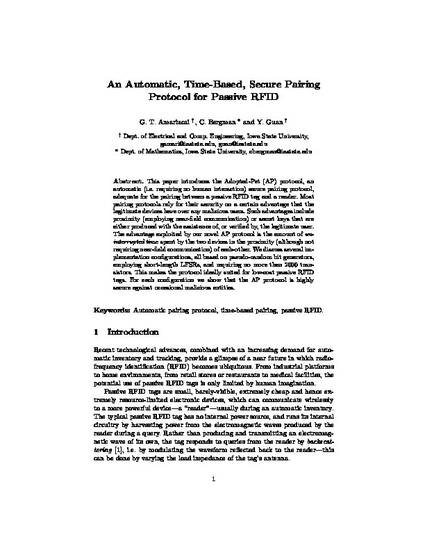
This paper introduces the Adopted-Pet (AP) protocol, an automatic (i.e. requiring no human interaction) secure pairing protocol, adequate for the pairing between a passive RFID tag and a reader. Most pairing protocols rely for their security on a certain advantage that the legitimate devices have over any malicious users. Such advantages include proximity (employing near-field communication) or secret keys that are either produced with the assistance of, or verified by, the legitimate user. The advantage exploited by our novel AP protocol is the amount of uninterrupted time spent by the two devices in the proximity (although not requiring near-field communication) of each-other. We discuss several implementation configurations, all based on pseudo-random bit generators, employing short-length LFSRs, and requiring no more than 2000 transistors. This makes the protocol ideally suited for low-cost passive RFID tags. For each configuration we show that the AP protocol is highly secure against occasional malicious entities.
Available at: http://works.bepress.com/clifford_bergman/26/

This is a post-peer-review, pre-copyedit version of an article published in Lecture Notes in Computer Science. The final authenticated version is available online at DOI: 10.1007/978-3-642-25286-0_8. Posted with permission.